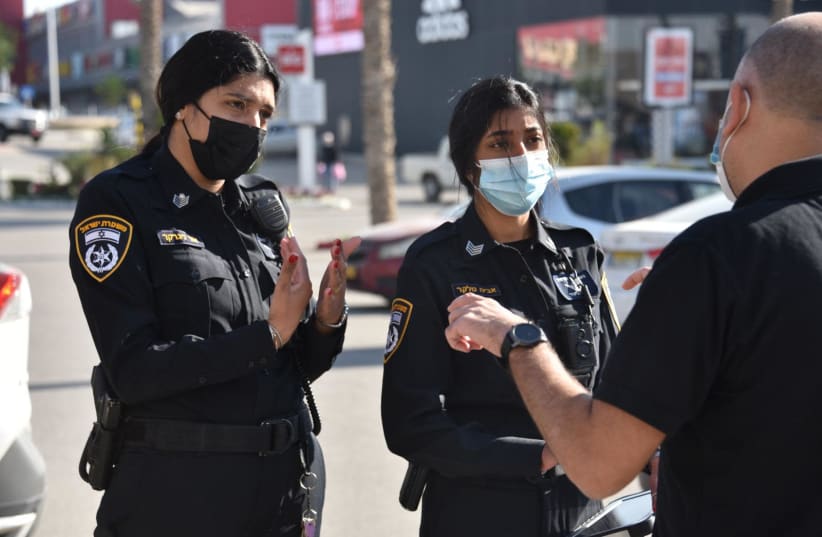An Israeli woman who filed a report with authorities for a rape she suffered during a trip to Sinai, was summoned for an investigation by Israel Police for violating coronavirus quarantine and a friend who accompanied her to hospital was fined for the offense, Kan reported on Sunday.
The women, who were traveling together, contacted police from Sinai and were told to come back to Israel, Kan reported. After returning, they went to the hospital where they were met by a police officer who came to register their complaint, but instead the office summoned the victim for questioning and issued a fine against the friend who accompanied her, Kan said.
Police confirmed that the woman was told to report for questioning about the quarantine violation - saying that she was treated with "appropriate sensitivity." Police also told Kan that the accompanying friend was fined, but that a cancellation of the was being considered due to the circumstances.
Public Security Minister Omer Bar Lev recently appointed an adviser on violence against women and will examine ways to improve the manner in which these cases are handled by officials, and the resources allocated to dealing with complaints by women. This review may be critical as numerous organizations have expressed concern about police handling of sexual offense cases.
Organizations combating sexual violence and rape culture that have criticized the police include Jerusalem's branch of the SlutWalk organization.
The organization changed its name to "Mufkarot" in Hebrew which means both "abandoned" and "promiscuous." The group explained the change in a Facebook post, stating that the word abandoned "highlights the treatment we get from the state: the victim-blaming that we encounter from police; the ease with which violent men are released back to their homes to continue to harm women; [and] authorities that release rapists and attackers – if they are punished at all."
The University of Haifa Clinic for Legal Feminism accused the police of regularly mishandling sexual offense cases and mistreating victims, according to preliminary findings in a new report.
The study, which involved interviews with 40 women who survived sexual trauma, found that nearly half of those who went to police to file complaints about sexual offenses were asked questions that were irrelevant to their case, such as detailed questions about their sexual history. The study also found that 80% of respondents whose first language is not Hebrew were not provided a translator when they filed their complaints.
Some 80% of study participants also said that their complaint never culminated in an indictment. Victims reported that they were not told of their basic rights, such as the right to speak to a female officer, or the possibility to ask that a representative from one of Israel's rape crisis centers be present.
“Too often, we see the police fail to collect evidence, ask questions in a sensitive manner and lack the adequate training needed to deal with someone who survived sexual trauma,” said Vardit Avidan, a lawyer and staff member at the clinic, supported by The David Berg Foundation. “As a result, women tend to leave a police station feeling even more defeated than before.”
Police handling of reporting of alleged sexual offenses recently made headlines when Israeli model Gal Gvaram recounted her experience by police and the indifference she endured during the filing of a sexual harassment complaint against modeling agent Shai Avital last week at the Tel Aviv-Jaffa police district headquarters.
Following the incident, both Israel Police and Bar Lev apologized to Gvaram.
Shira Silkoff contributed to this report.
